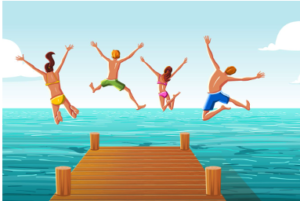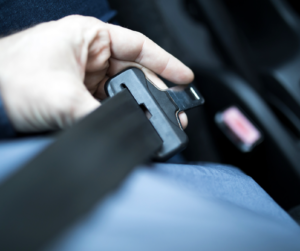
Report: Gabby Vipond, WRSC nurse
With summer holidays upon us and an extended time away from the safety net of the school environment, it’s an important time to talk about safety during the school holidays and keeping your teens safe.
Holidays are a time when you relax as a family and often alcohol is present. As your teen gains more and more independence, the temptation to experiment with alcohol and other drugs may arise. They may even ask you for a drink of your alcohol.
Evidence shows that young people are susceptible to permanent damage to their brains from alcohol, vaping and other drugs because their brains are still developing. If your teen asks to try some of your alcohol, it is OK to say no. The good news is that young people are initiating drinking later than they did 20+ years ago.
Teach your kids about peer pressure and to say no if they are ever pressured to have a vape, cigarette or use alcohol and drugs. Teach them that even one try can lead them down an unintended pathway of regret. Open conversations allow your teen to know that if they run into a difficult situation and need help that you are there to support them and help them make good choices.
Remember your goal is always to have open conversations and not deliver a lecture, same goes when they disclose usage and are seeking help or reassurance in relation to drug, alcohol, vaping or smoking.
Talking about relationships and intimacy is a difficult conversation, but one that is worthwhile and helps build your young person’s understanding of relationships and the world we live in. These conversations are important and best coming from their trusted adult rather than finding out information from unreliable sources such as the internet or friends.
Make sure you are open and honest and allow them to ask any questions they may have. These conversations are great at helping to build trust and openness which will strengthen your own relationship and gives your young person the invitation to discuss personal relationship and sexual health matters when the need arises.

Summer school holidays is a fun time of year however hospitals frequently see an increase in presentations of trauma and accident-related injuries for all children and adolescents during this period. Adolescents are placed at great risk from certain behaviours that are a part of normal and healthy development therefore caution and consideration needs to be practiced when families are on holidays and undertaking activities different than normal.
Some of those accidents and injuries include severe burns from barbecues and campfires. Teach your young people how to use barbecues and campfires safely, have them help you with the Christmas/Boxing Day cooking and show them how to check the barbecue for leaks, talk about the safety and awareness required. Teach kids how to use a campfire and how to put out a campfire safely if you go camping this summer.
Here are some useful resources:
Know the drill before you grill
Burns prevention and treatment
Burn safe brochure
Campfire safety
Stay safe on the roads
Motor vehicle accidents including motorbikes and car accidents happen more frequently during busy Christmas periods.
Keep teaching your kids how to drive if they have their learners. Give them opportunities to drive in more rural locations that they may not get much practice in. Question if your teen is truly ready to drive motorbikes for fun. Being a role model when using the road is the most important thing you can do; these young minds are watching and learning what it is to be in this world, and you can show them.
If you plan to enjoy summertime water activities, teach your kids how to identify safety concerns at the beach and inland waterways, such as rips and currents and remember to swim between the flags at the beach.
Rivers may be flowing very swiftly this summer following the floods experienced in Victoria this year and debris underneath the waters surface is a real risk teach your teen how to assess the risk before entering. Ensure your child knows their capabilities in the water and teach your kids to never swim alone.
In a medical emergency please remember to call Emergency services on 000
For non-urgent matters there is the following:
Nurse-on-call (free) – 1300 60 60 24, website
Kids doc on call (cost) – website
13 sick national home doctor (bulk billed) – 137 425, website
For any mental health concerns see Compass post on resources and services.

